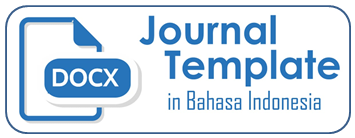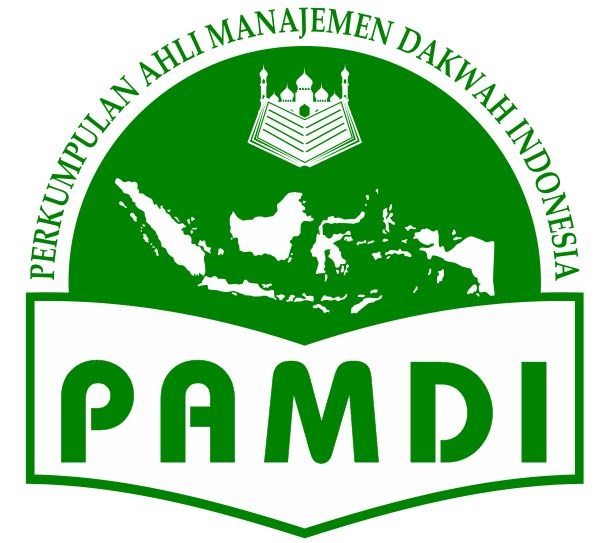Balancing Marketing and Sharia Compliance: A Study of Da'wah Management Models at Halal Centers in UIN Sunan Kalijaga Yogyakarta and UIN Sunan Ampel Surabaya
DOI:
https://doi.org/10.56874/almanaj.v4i1.1774Keywords:
Halal Certification, Da'wah Management, Sharia ComplianceAbstract
This study investigates the management models of halal centers at UIN Sunan Kalijaga Yogyakarta and UIN Sunan Ampel Surabaya, focusing on balancing marketing strategies and sharia compliance. Using a qualitative methodology with a phenomenological approach, the research explores the perspectives of ten halal center managers through observations and semi-structured interviews. Thematic analysis reveals a multi-dimensional understanding of halal, extending beyond consumables to include behaviors and societal implications. Both institutions emphasize product excellence and community safety, though their approaches differ. Key findings highlight the importance of integrating religious, regulatory, and market-based perspectives in halal certification, enhancing consumer trust and business credibility. Challenges include divergent regulations between BPJPH and the MUI fatwa commission and the lack of an accessible online registration system. Future research should focus on harmonizing regulatory frameworks and expanding certification processes to other industries. This study underscores the pivotal role of Halal Centers in promoting halal literacy and supporting government initiatives, thereby fostering a robust halal industry in Indonesia.
References
Ashmuni, Y. (n.d.). Ijtihad wa al-Taqlid. Hidayah al-Tullab.
Baharun, H., & Niswa, H. (2019). Syariah Branding; Komodifikasi Agama Dalam Bisnis Waralaba Di Era Revolusi Industri 4.0. INFERENSI: Jurnal Penelitian Sosial Keagamaan, 13(1), 75–98. https://doi.org/10.18326/infsl3.v13i1.75-98
Creswell, J. W., & Miller, D. L. (2000). Determining validity in qualitative inquiry. Theory into Practice, 39(3), 124-130.
Don, A. G. H., & Awang, J. (2009). Knowledge Management and its Impact on Islamic Da ’ wah: A Historical Perspective. Journal of Islamic and Arabic Education, 1(2).
dpmpt. (2021, October 11). Upaya Pemerintah Untuk Memajukan UMKM Indonesia. Dpmpt.Kulonprogokab.Go.Id. https://dpmpt.kulonprogokab.go.id/detil/1301/upaya-pemerintah-untuk-memajukan-umkm-indonesia#
Economy, D. T. C. of I. (2019). An Inclusive Ethical Economy State of the Global Islamic Economy: Report 2018/19. salaamgateway.com.
Fealy, G. (2008). Expressing Islam: Religious Life and Politics in Indonesia. In G. Fealey & S. White (Eds.), Expressing Islam: Religious Life and Politics in Indonesia (pp. 15–39). ISEAS Publishing. https://doi.org/10.1355/9789812308528-011
Fealy, G. (2012). Mengkonsumsi Islam: Agama yang Dijadikan Jualan dan Kesalehan yang Diidam-idamkan di Indonesia. In G. Fealy & S. White (Eds.), & A. Muhajir (Trans.), Ustadz Seleb Bisnis Moral & Fatwa Online: Ragam Ekpresi Islam Indonesia Kontemporer. Komunitas Bambu.
Huda, N., Hudori, K., Fahlevi, R., Badrussa’Diyah, Mazaya, D., & Sugiarti, D. (2017). Pemasaran Syariah: teori dan Aplikasi. Kencana.
Ibn Taymiyah, A. bin A. al-S. (1422). al-Qawaid al-Nuraniyah al-Fiqhiyah. Dar Ibn Jauzi.
Jayadi, H. (2022). Komodifikasi Agama di Meda Sport (Studi pada Media Online Bola.com). UIN Mataram.
Kunaifi, A. (2016). Aktualisasi Pemasaran Syari’ah. MIYAH, XI(01), 52–71.
Mahmud, A. (2020). Hakikat Manajemen Dakwah Pendahuluan Metode Jenis penelitian yang digunakan dalam penelitian ini adalah studi pustaka. Palita: Journal of Social Religion Research, 5(1), 65–76.
Mahmuddin. (2018). Manajemen Dakwah. Wade Group.
Mas’udi, M. F. (2004). Meletakkan Kembali Maslahat sebagai Acuan Syariat. In Z. Misrawi (Ed.), Menggugat Tradisi: Pergulatan Pemikiran Anak Muda NU. Kompas.
Miles, M. B., & Huberman, A. M. (1984). Qualitative Data Analysis: A Sourcebook of New Methods. SAGE Publications.
Munir, M., & Ilahi, W. (2006). Manajemen Dakwah. Kencana.
Musholi. (2018). Pengembangan Masyarakat Dan Manajemen Dakwah. Tasamuh: Jurnal Studi Islam, 9(2), 487–521. https://doi.org/10.32489/tasamuh.216
Downloads
Published
Issue
Section
License
- All articles published in Al Manaj: Jurnal Manajemen Dakwah are licensed under a Creative Commons Attribution-ShareAlike 4.0 International (CC BY-SA) license. This means anyone is free to copy, transform, or redistribute articles for any lawful purpose in any medium, provided they give appropriate attribution to the original author(s) and Al Manaj: Jurnal Manajemen Dakwah, link to the license, indicate if changes were made, and redistribute any derivative work under the same license.
- Copyright on articles is retained by the respective author(s), without restrictions. A non-exclusive license is granted to Al Manaj: Jurnal Manajemen Dakwah to publish the article and identify itself as its original publisher, along with the commercial right to include the article in a hardcopy issue for sale to libraries and individuals.
- Although the conditions of the Creative Commons Attribution-ShareAlike 4.0 International (CC BY-SA) license do not apply to authors (as the copyright holder of your article, you have no restrictions on your rights), by submitting to Al Manaj: Jurnal Manajemen Dakwah, authors recognize the rights of readers and must grant any third party the right to use their articles to the extent provided by the license.

This work is licensed under a Creative Commons Attribution-ShareAlike 4.0 International License.


.jpg)










